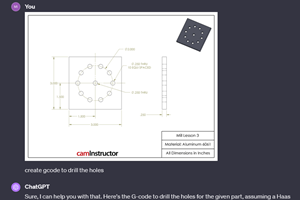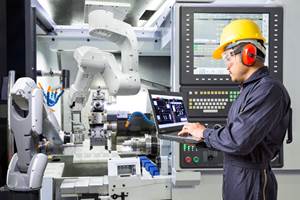A Cybersecurity Assurance Program to Help Protect the IIoT
UL’s Cybersecurity Assurance Program for industrial control systems promises to help developers of network-connectable products test them for security weaknesses or software vulnerabilities.
Share






UL, a global safety science organization, has announced what it calls a Cybersecurity Assurance Program (UL CAP) for industrial control systems. Using the new UL 2900-2-2 standard, UL CAP for industrial control systems is designed to provide testable cybersecurity criteria to help assess software vulnerabilities and weaknesses, minimize exploitation, address known malware, review security controls and increase security awareness. UL CAP is intended for control system manufacturers who need support in assessing security risks while they continue to focus on product innovation to help build safer, more secure products. These steps will help protect the Industrial Internet of Things (IIoT). The program should benefit OEMs, machine tool builders, system integrators, and retrofitters who want to mitigate risks by sourcing products assessed by an expert third party.
Network-connected products and systems offer capabilities that promise significant boosts in productivity to manufacturing companies. Industrial control systems, for example, are becoming more interconnected, connectable and networkable, thus making data-driven manufacturing a practical reality on the factory floor. However, there are growing risks that threaten the security, performance and financial return on these control systems and the equipment they run.
“We’re aiming to support and underpin the innovative, rapidly iterating technologies that make up the Industrial Internet of Things with a security program,” says Rachna Stegall, director of connected technologies at UL. “The more industrial control systems become interconnected with other devices, the greater the potential security risks. The Cybersecurity Assurance Program’s purpose is to help manufacturers, purchasers and end-users mitigate those risks via methodical risk assessments and evaluations.”
Developers of UL CAP solicited input from major stakeholders representing the Federal government, academia and industry to elevate the security measures deployed by companies, and agencies who may have equipment and devices connected to digital networks. For example, automotive OEMs and Tier 1 suppliers, along with the many job shops and manufacturing subcontractors that support them, make up a critical supply chain that must have cybersecurity measures as a priority. UL CAP is being presented as a means for evaluating the security provisions of control systems with these supply chains.
UL’s evaluation of industrial control system security uses UL 2900-2-2, which is within the UL 2900 series of standards. This series outlines technical criteria for testing and evaluating the security of products and systems that are network-connectable. These standards form a basic set of requirements to measure, and then improve, the fitness of products and systems from a network security standpoint. UL 2900 is designed to incorporate additional technical criteria as the security needs in the marketplace evolve.
UL CAP can help vendors identify security risks in their products and systems, and it suggests methods for mitigating those risks. The UL 2900-2-2 standard can be applied to industrial control system components such as:
- Programmable logic controllers (PLCs)
- Remote network terminals
- Human-machine Interfaces (HMIs)
- Input/output (I/O) servers
- Machine tool control units
- Intelligent devices such as sensors
- Fieldbus connections
Industrial control systems that meet the requirements outlined in the standard enables them
to be certified by UL as “UL 2900-2-2 compliant.” Additionally, since security is an ever-
changing challenge, UL 2900-2-2 can be used to evaluate a vendor’s processes for design, development and maintenance of secure products and systems.
for more information on UL CAP, or visit Booth E-4135 at IMTS, To register for a free webinar about this program on October 11 at 10:00am CST, click here.
Related Content
Can ChatGPT Create Usable G-Code Programs?
Since its debut in late 2022, ChatGPT has been used in many situations, from writing stories to writing code, including G-code. But is it useful to shops? We asked a CAM expert for his thoughts.
Read More2 Secondary Coordinate Systems You Should Know
Coordinate systems tell a CNC machine where to position the cutting tool during the program’s execution for any purpose that requires the cutting tool to move.
Read MoreOrthopedic Event Discusses Manufacturing Strategies
At the seminar, representatives from multiple companies discussed strategies for making orthopedic devices accurately and efficiently.
Read More6 Machine Shop Essentials to Stay Competitive
If you want to streamline production and be competitive in the industry, you will need far more than a standard three-axis CNC mill or two-axis CNC lathe and a few measuring tools.
Read MoreRead Next
Last Chance! 2025 Top Shops Benchmarking Survey Still Open Through April 30
Don’t miss out! 91ÊÓƵÍøÕ¾ÎÛ's Top Shops Benchmarking Survey is still open — but not for long. This is your last chance to a receive free, customized benchmarking report that includes actionable feedback across several shopfloor and business metrics.
Read MoreMachine Shop MBA
Making Chips and 91ÊÓƵÍøÕ¾ÎÛ are teaming up for a new podcast series called Machine Shop MBA—designed to help manufacturers measure their success against the industry’s best. Through the lens of the Top Shops benchmarking program, the series explores the KPIs that set high-performing shops apart, from machine utilization and first-pass yield to employee engagement and revenue per employee.
Read MoreAMRs Are Moving Into Manufacturing: Considerations for Implementation
AMRs can provide a flexible, easy-to-use automation platform so long as manufacturers choose a suitable task and prepare their facilities.
Read More






















